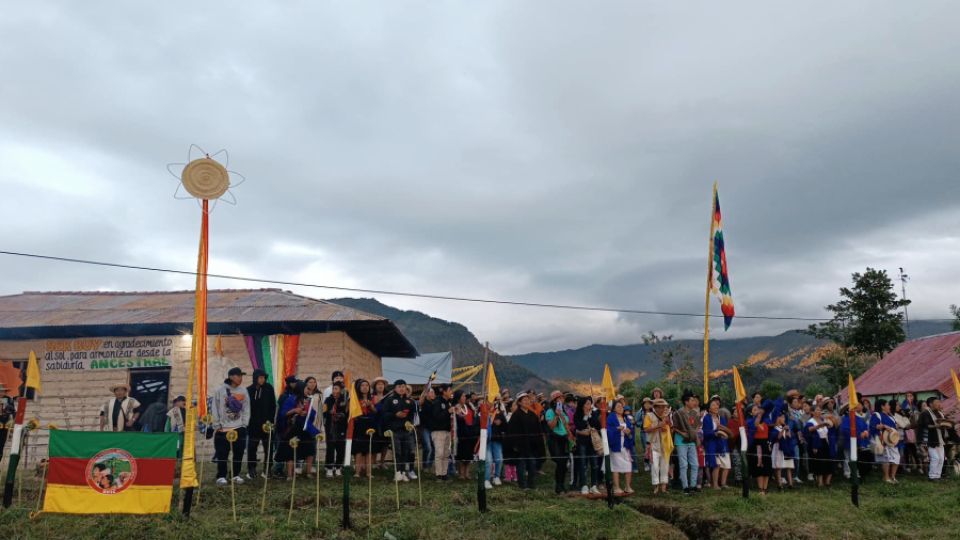At least 177 environmentalists were killed last year while defending the world's remaining biodiversity havens. The tragic figure is counted by a Global Witness report, which annually tracks cases of murder and persecution of nature and indigenous land defenders. The situation is worst by far in Latin America, where environmentalists and traditional communities, particularly in the Amazon, face pressure from ruthless mining companies, affiliated paramilitary groups and state forces.
“Although the overall figure is slightly lower last year than in 2021, this does not mean that the situation has significantly improved. The worsening climate crisis and the ever-increasing demand for agricultural commodities, fuel and minerals will only intensify the pressure on the environment and those who risk their lives to defend it. Also increasingly, non-lethal strategies such as criminalisation, harassment and digital attacks are also being used to silence defenders," summarises the report. It adds that in many countries it is common to portray environmentalists as troublemakers or even terrorists who threaten economic growth, as pressure from the authorities is often accompanied by trumped-up legal charges.
→ Read the full Global Witness report here
The vast majority of homicides – 125 out of 177 documented – occurred in just three countries: Colombia, Brazil and Mexico. "These are countries with very different historical backgrounds and social and political contexts. But what they have in common is that their governments have utterly failed to stop the killings or hold the perpetrators accountable," the report says. Latin America as a whole has been by far the most dangerous region for environmental defenders over the long term: since 2012, when data collection for the Global Witness report began, it has accounted for 70% of all recorded killings. Last year, the proportion rose to almost nine-tenths.
It is no coincidence that more than a third of all known victims are indigenous South Americans - a disproportionate share given that indigenous people make up less than 6 % of the world's population. These murdered land defenders often come directly from the Amazon: a rainforest vital to the world's ecosystem and biodiversity, which has suffered from years of deforestation and wild mineral extraction.
The area is characterised not only by the extreme danger it poses to the local population, who are unwilling to put up with the plundering of nature, but also by the very low rate at which crimes are solved and punished. Data from human rights defenders in Colombia, for example, show that only one in 20 cases of attacks on activists, including environmental ones, are brought to justice. However, Colombia is also one of the countries where politics speaks into the situation, suggesting a possible turn for the better - or at least from complete inaction to violence.
Colombia's President Gustavo Petro, who takes office in August 2022, has promised to protect environmental defenders, among other reforms. Under the new government, Colombia has also ratified the Escazú Convention: a treaty specifically designed to enshrine the public's right to participate in environmental decision-making, with full legal protection. Also in neighbouring Brazil, the situation is very difficult, but slightly optimistic. President Jair Bolsonaro, during whose mandate attacks on indigenous Amazonians and their lands have tripled – and whose government’s attitude to environmental protection was, to say the least, contemptuous – has left the office by the end of the year.
The Global Witness report also mentions clear successes. The European Union’s Corporate Sustainability Due Diligence Directive (CSDDD), which not only directly requires large companies operating in Europe to prevent adverse human rights and environmental impacts of their activities, but also allows potential victims to actively defend themselves at European courts, has already passed through a significant part of the EU legislative process.
Specifically Latin America and the Caribbean has also taken a major step forward with the adoption of the aforementioned Escazú Agreement. Globally, these achievements will be supported by the UN's 2022 decision, which recognises the right to a clean and sustainable environment as an integral part of human rights.
However, Global Witness also adds a set of recommendations for both companies and governments. Beyond the obvious steps such as preventing violence against environmental defenders and enforcing corporate responsibility for externalities, it also highlights the need to link climate or environmental commitments - such as the well-known Paris Convention - with existing human rights norms. “This should include strengthening the land rights of Indigenous and traditional communities and enhancing their participation in decision-making in recognition of the key role they play in protecting the world’s last remaining biodiverse areas,” the report concludes.







